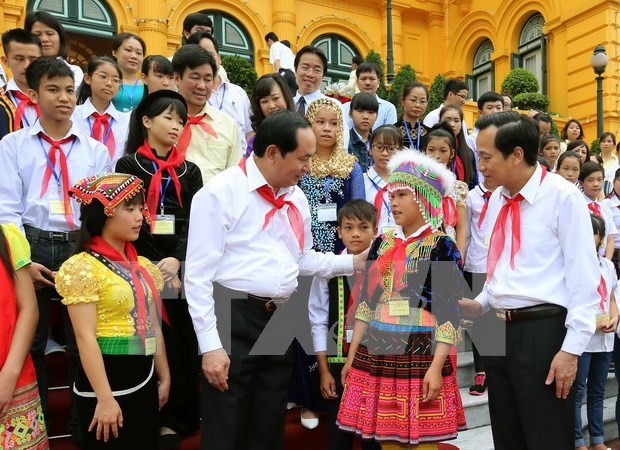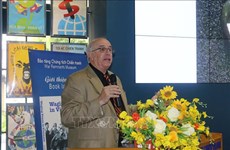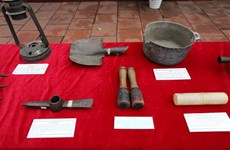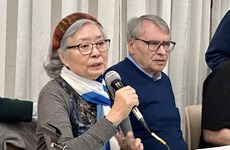Child care, education, protection – strategic tasks: President
Child care, education and protection are strategic matters that contribute to preparing and raising the quality of human resources in service of the country’s industrialisation and modernisation.
 President Tran Dai Quang meets with disadvantaged children on the occasion of International Children's Day (Source: VNA)
President Tran Dai Quang meets with disadvantaged children on the occasion of International Children's Day (Source: VNA)Speaking at a meeting with 55 disadvantaged children from 11 cities and provinces nationwide in Hanoi on May 30 on the occasion of International Children’s Day (June 1), the State leader affirmed that the Vietnamese Party, State and people have always given their love to children.
Over the past years, priority has been given to protecting, educating and taking care of underprivileged children with a slew of specific policies covering social allowance, health care, education, vocational training, rehabilitation and legal assistance, he said.
Thanks to the joint efforts of the entire political system, families, schools and the whole of society, the Ministry of Labour, Invalids and Social Affairs (MoLISA)’s National Fund for Vietnamese Children has, to date, mobilised over 5 trillion VND (225 million USD) from domestic and foreign donors to support more than 30 million children in especially difficult circumstances and those residing in remote and far-flung areas, the President noted.
He asked the MoLISA and other ministries, agencies and localities to continue effectively actualising the 11 th Poliburo’s Directive No. 20 CT/TW on enhancing the Party leadership over child care, education and protection in the new situation and the National Action Programme for Children during 2016-2020 in combination with the Vietnamese Family Development Strategy through 2020.
The leader also called for efforts to disseminate relevant laws, knowledge and skills, saying investments should prioritise facilities for children, especially those belonging to ethnic minority groups and beneficiaries of social welfare policies, and those who live in localities in extreme difficulties or affected by natural disasters and diseases.
The work requires the involvement of different sectors with families, schools, the community and socio-political organisations playing the most important role, he stressed.
Praising outstanding academic achievements the students have made despite a range of disadvantages in their life, the President said they are deserved to be President Ho Chi Minh’s good children.
The MoLISA reported that since the first event was held in 2008, there have been 425 children from 63 cities and provinces across the country engaged in the programme.-VNA













